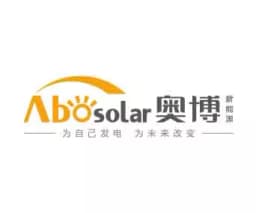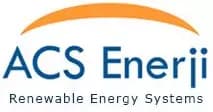Buyer's Guide 2026
Best Solar Panels for Homes
EnergyPal offers the best solar panels for homes by value, price, wattage & warranty. Our Buyer's Guide reviews REC, Hanwha Q-Cells, Aptos, and other top brands.
The Best Solar Panels For Your Home
Last updated: January 9, 2026
EnergyPal Team
Looking for the best solar panels for your home? It is easy to focus on just watts, efficiency or price. But what's also important is making sure you get the most value from your solar panels. For most homeowners that value means long term reliable savings. If that's you, keep reading. Here's our guide and recommendations for the best solar panels.
The 8 Best Solar Panels (February 2026)
Monocrystalline
Q Cells
Q.PEAK DUO BLK ML-G10+ 405
Efficiency
20.6%
Wattage
405
Warranty
25 years
Monocrystalline
REC
Alpha REC405AA Pure Black
Efficiency
21.9%
Wattage
405
Warranty
25 years
Monocrystalline
Q Cells
Q.PEAK DUO BLK ML-G10+ 400
Efficiency
20.63%
Wattage
400
Warranty
25 years
Monocrystalline
Q Cells
Q.TRON BLK M-G2+ 420
Efficiency
21.5%
Wattage
420
Warranty
25 years
Monocrystalline
Q Cells
Q.TRON BLK M-G2+ 425
Efficiency
21.8%
Wattage
425
Warranty
25 years
Monocrystalline
REC
REC 360
Efficiency
20.6%
Wattage
360
Warranty
25 years
Monocrystalline
Aptos
DNA 144-440
Efficiency
20.21%
Wattage
440
Warranty
30 years
Monocrystalline
SEG Solar
SIV 410-BMD-HV
Efficiency
21%
Wattage
310
Warranty
25 years
February 2026 Rankings: Top 8 Solar Panel Comparison
We evaluated top solar panels as of February 2026, focusing on residential products from leading manufacturers. Our review assesses performance and technology across their product range, emphasizing efficiency and quality in their panel lineup. The following comparison table lists panel name, cell type, efficiency rating, wattage, and output warranty.
This resource aims to showcase each solar panel's unique features and performance, helping you make an informed decision for your home solar energy needs.
| Manufacturer | Panel Name | Cell Type | Efficiency Rating | Wattage | Output Warranty |
|---|---|---|---|---|---|
| Q Cells | Q.PEAK DUO BLK ML-G10+ 405 | Monocrystalline | 20.6% | 405 | 25 years |
| REC | REC405AA | Monocrystalline | 21.9% | 405 | 25 years |
| Q Cells | Q.PEAK DUO BLK ML-G10.a+ 400 | Monocrystalline | 20.63 | 400 | 25 years |
| Q Cells | Q.TRON BLK M-G2+ 420 | Monocrystalline | 21.5% | 420 | 25 years |
| Q Cells | Q.TRON BLK M-G2+ 425 | Monocrystalline | 21.8% | 425 | 25 years |
| REC | REC 360 | Monocrystalline | 20.6% | 360 | 25 years |
| Aptos | DNA 144 - 440W | Monocrystalline | 20.21% | 440 | 30 years |
| SEG Solar | SIV 410-BMD-HV | Monocrystalline | 21% | 410 | 25 years |
When looking into what the best solar panel choice is for your home it’s important to know:
Panel Types
There are three main types of solar panels commonly used for residential installations.
The Solar Panel's Efficiency Rating:
The efficiency rate of a solar panel indicates how effectively it converts sunlight into electricity. It is expressed as a percentage and typically ranges from 15% to 23%. Higher efficiency panels produce more electricity per square foot and are more suitable for homes with limited roof space or those seeking maximum energy output.
Solar Panel Wattage:
The wattage of a solar panel refers to its maximum power output under standard test conditions (STC). It indicates how much electricity the panel can generate at peak performance. Solar panels can come in a range of wattages, and higher wattage panels generate more electricity. Generally panels will range from 350-450 Watts. When selecting a solar panel, consider your household's energy needs and available roof space to determine the optimal wattage.
The Panels Warranty:
Solar panel warranties are crucial for long-term reliability and peace of mind. There are typically two types of warranties:
Product Warranty: This covers defects in the materials and workmanship of the solar panel and is typically valid for 10 to 25 years. A longer product warranty indicates the manufacturer's confidence in the panel's quality.
Performance Warranty: Also known as output warranty and production guarantee. This guarantees the panel's efficiency over time, ensuring that it maintains a certain percentage of its initial power output after a specific number of years (e.g., 80% after 25 years). A robust performance warranty ensures that your panels will continue to produce a significant amount of electricity throughout their lifespan.
Remember that the best solar panel choice for your home depends on your specific requirements, available budget, and roof space. With that in mind, let's look at the solar panel manufacturers.
The Best Solar Panel Manufacturers of 2026
The Best Solar Panel Manufacturers In the world of sustainable energy, choosing the right solar panel manufacturer is crucial. Our comprehensive list includes some of the industry's leading names like REC, Hanwha Q-Cells, Solaria, Panasonic, Silfab Solar, and Aptos. Each of these manufacturers stands out for their exceptional quality, efficiency, and reliability. Here's a detailed overview of what they offer:
frequently asked questions
How Can I Assess My Household's Energy Needs for Solar Panels?
To assess your household's energy needs for solar panels, examine your monthly electricity bills to understand your average usage. Consider peak energy times, seasonal changes, and potential future increases in energy consumption. This analysis will help you determine the appropriate size for your solar panel system. Learn more about sizing your solar system here.
What Are the Differences Between Monocrystalline, Polycrystalline, and Thin-Film Solar Panels?
Monocrystalline panels are highly efficient and aesthetically pleasing but are more expensive. Polycrystalline panels are less efficient and cheaper, with a blue hue. Thin-film panels are the least efficient but work well in low-light conditions and have a sleek appearance. Your choice depends on your budget, space, and efficiency needs.
How Does Solar Panel Efficiency Impact Performance?
Solar panel efficiency determines how effectively they convert sunlight into electricity. Higher efficiency panels produce more power per square meter, requiring less space, but are more costly. Choose based on your roof or ground space, budget, and desired energy output.
What Should I Look for in Solar Panel Warranties?
Look for solar panels with a long-term performance warranty (guaranteeing efficiency over time) and a product warranty (covering defects and equipment issues). Longer warranties usually indicate better quality and reliability.
How Do I Evaluate a Solar Panel Manufacturer's Reputation?
Evaluate a manufacturer's reputation by researching customer reviews, industry ratings, and feedback. Reputable companies often have a track record of customer satisfaction and product reliability.
Are There Incentives and Rebates for Solar Panel Installation?
Many regions offer incentives, tax credits, and rebates for solar panel installation. These can significantly reduce initial costs and improve ROI. Check local government and energy department websites for available programs. For home solar incentives in your area, click here.
What Should I Consider When Choosing a Solar Panel Installer?
Choose an experienced and reputable solar panel installer. Proper installation is key to system performance and safety. Compare quotes, check credentials, and read customer reviews to make an informed decision. See our solar installer review database.
What Financing Options Are Available for Solar Panels?
If upfront payment is challenging, consider solar leases or power purchase agreements (PPAs), which let you pay for the solar power generated instead of the panels themselves. Learn more about solar financing options.
What Maintenance and Durability Should I Expect from Solar Panels?
Solar panels require minimal maintenance, mainly periodic cleaning and inspections. Choose panels made from durable materials with a robust frame to withstand local weather conditions.
What Local Regulations and Permits Are Required for Solar Panel Installation?
Local regulations and permits vary. They may include placement restrictions and specific installation permits. Contact your local government or a professional installer for detailed information. More information on permits here.
What is the Payback Period and ROI for Solar Panel Systems, and How is it Calculated?
The payback period for a solar panel system is the time it takes to recoup your initial investment through energy savings. To calculate it, divide the total cost of the solar panel system by the annual financial benefits (energy savings and any incentives). The return on investment (ROI) is calculated by dividing the net benefits (total benefits minus the cost) by the cost, then multiplying by 100 to get a percentage. This figure helps you understand the financial return and efficiency of your solar investment over time.
Need help with what we just covered? Our Solar Advisors will help you determine which panels are best for your home. Get a free customized solar panel quote for your home today!
Get a custom home solar quote.
Searching for solar panels?
Browse our database to find a comprehensive list of manufacturers and their panels.
All Solar Panel Manufacturers
Get a free quote
and EnergyPal offers.
Call (800) 990-3725 or complete the questions and an EnergyPal Advisor will contact you with comparative quotes.















